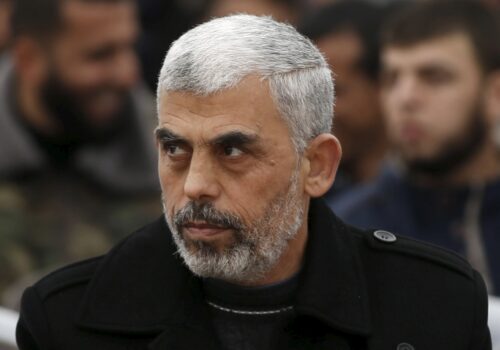
The economic and social costs of the war in Gaza

A year after the Hamas attacks that led to war in Gaza, there can be no doubt: This latest outbreak of violence in the decades-long Israeli-Palestinian conflict has wrought by far the most significant damage, expanding to include attacks on shipping in the Red Sea by the Houthis, Israeli operations against Hezbollah in Lebanon, and the displacement of refugees across three countries. The war has caused nearly $18.5 billion in damage in Gaza alone, according to preliminary assessments by the World Bank, the United Nations, and the European Union.
The onset of the war caused supply and demand shocks that led to a decline in Israeli economic activity by 21 percent in the fourth quarter, year on year. Lebanon, already deep in an economic crisis before the war began, has seen one of its few stable sources of income—tourism—collapse. As international shipping reroutes away from the Suez Canal to avoid the risk of attacks in the Red Sea, one of Egypt’s primary sources of revenue has dropped by half.
And it is not just the war. The confluence of several shocks—high inflation and a cost-of-living crisis, unsustainable debt, population displacements, and natural disasters, in addition to the conflict in Gaza—have coalesced into a multifaceted crisis threatening the entire region, entrenching multidimensional poverty and inequality, and unraveling many development gains.
In a new report, economist Perrihan Al-Riffai tallies the economic and social costs of a year of war in the Middle East, analyzing Israel and the Palestinian territories, neighboring countries, and other Middle Eastern countries—rich oil producers and fragile states alike—starting to feel the effects. Among her key findings:
The war in Gaza is imposing debilitating social costs on food security in the region’s already fragile and conflict-affected states. Social vulnerabilities have increased in the Palestinian territories, Yemen, and Lebanon. Already net food importers, these fragile states must contend with sanctions and straight-jacketed humanitarian aid flows that are crucial for survival.
If the conflict escalates and persists, it will bring heightened vulnerabilities and greater uncertainty to the region—including to its oil-rich economies. Political stability will be threatened, leading to greater economic uncertainty that deters foreign investment and redirects investor risk sentiment away from the region. Furthermore, commodity markets—especially given the oil production cuts decided by the OPEC+ countries—may bring about inflationary pressures and further tighten global financial conditions.
Moving ahead with a permanent ceasefire and a solid reconstruction plan is the only way forward for the socioeconomic benefit of the region. Peacebuilding efforts, mediated by the international community, have become an existential imperative, not just for the region’s citizens, but for the rest of the world as well. In addition to the devastating human toll of the war’s continuation, should the duration and intensity of the war in Gaza spread to other countries in the region, the impact on commodity prices, supply chains, and fiscal costs could undermine the fragile soft landing that is still emerging after policy measures successfully brought inflation under control.
Perrihan Al-Riffai is an economic expert at the Qatar Central Bank. Previously she was an adviser to the executive director for Arab States and the Maldives at the International Monetary Fund. Al-Riffai holds an M.Phil. in economics from The George Washington University in Washington D.C. and an M.A. in economics from the American University in Cairo.
Related content

empowerME at the Atlantic Council’s Rafik Hariri Center for the Middle East is shaping solutions to empower entrepreneurs, women, and youth and building coalitions of public and private partnerships to drive regional economic integration, prosperity, and job creation.

At the intersection of economics, finance, and foreign policy, the GeoEconomics Center is a translation hub with the goal of helping shape a better global economic future.
Image: REUTERS/Ali Alloush


